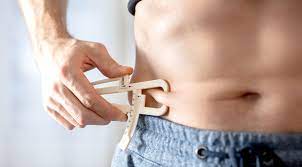Are you among the many individuals who have been struggling to lose weight and get rid of stubborn body fat? The journey to achieving your weight loss goals may seem challenging, but there are proven tricks and strategies that can make a significant difference. By incorporating these effective methods into your routine, you can finally cut off that unwanted fat and embark on a successful weight loss journey. In this article, we will explore a few key tricks that have been shown to work wonders in reducing stubborn fat and helping you achieve the body you desire. Say goodbye to frustration and hello to a healthier, fitter you!
Change The Food Preferences
When it comes to achieving effective fat loss, one of the most impactful steps you can take is to modify your food preferences. By consciously choosing healthier alternatives, you can make a significant contribution to your weight loss goals. Let’s explore some food preference changes that can aid in your fat loss journey:
Lemon Water
Start your day with a glass of fresh lemon water, preferably lukewarm. This simple yet powerful beverage helps cleanse the liver by boosting enzyme secretion, leading to improved fat metabolism.
Cranberry Juice
Incorporate unsweetened cranberry juice into your daily routine. Dilute it in water and drink it throughout the day. Cranberry juice contains organic acid components that act as emulsifying agents, breaking down fat deposits by digesting lymphatic wa
Fish
Include fatty fish like salmon, mackerel, tuna, or halibut in your diet. These fish are rich in omega-3 fatty acids, which can help break down fat deposited around the waistline. Aim to consume these fish at least twice a week. If you prefer not to eat fish, you can consider taking fish oil as an alternative. A daily intake of 1 tablespoon or 6 grams is recommended.
Chia Seeds
Add chia seeds to your breakfast routine. These tiny seeds are packed with omega-3 fatty acids, minerals, dietary fibers, and antioxidants. The high fiber content helps you feel full for longer, preventing overeating. Sprinkle 1 tablespoon of chia seeds on your sandwich, cereal, soup, salad, or yogurt for a nutritional boost.
Ginger – Lemon Tea
Kickstart your mornings with a cup of ginger-lemon tea sweetened with honey. Ginger is a digestive and thermogenic agent that aids digestion, keeps the body warm, curbs overeating, alleviates age-related hormonal problems, reduces stress, and helps control the production of the steroid hormone cortisol.
Garlic
Incorporate a few raw garlic cloves into your morning routine, along with fresh lemon water on an empty stomach. Consuming garlic on a regular basis helps prevent adipogenesis, which is the transformation of pre-adipocytes/pre-lipocytes/pre-fat tissues into adipose/lipocytes/fat tissues. This can further aid in fat reduction.
Herbal Infusion
In addition to herbal teas, you can create your own herbal infusion at home for body cleansing. Prepare an infusion by soaking a slice of cucumber, a slice of lemon, grated ginger, and a few mint leaves in water overnight. Drink this infused water throughout the day to enhance blood circulation, improve metabolism, and reduce food cravings, ultimately burning stubborn fat.
Green Tea
Replace your regular tea or coffee with green tea. Green tea contains a type of catechin called EGCG (Epigallocatechin-3-Gallate), which boosts metabolism and promotes fat burning. Regular consumption of green tea can support your weight loss efforts.
Change The Eating Pattern
When it comes to your fat-burning journey, it’s not just about what you eat but also about how you eat. Making changes to your eating pattern can have a significant impact on your weight loss goals. Consider the following tips to optimize your eating pattern for effective fat loss:
- Eat Mindfully: Pay attention to your hunger and fullness cues. Eat when you’re truly hungry and stop eating when you’re satisfied. Avoid mindless eating or eating out of boredom, stress, or emotions. This mindful approach to eating helps you maintain better control over your food intake.
- Emphasize Fresh Veggies and Fruits: Fill your plate with a variety of fresh vegetables and fruits. They are low in calories and high in nutrients, fiber, and water content, which can help you feel full and satisfied. Incorporate them into your meals and snacks for added nutrition and to support your weight loss efforts.
- Hydrate with Plain Water: Make water your go-to beverage. Hydrating adequately with plain water throughout the day can help you stay hydrated, curb unnecessary calorie intake from sugary drinks, and support your body’s natural processes, including fat metabolism. Aim to drink at least 8 cups (64 ounces) of water daily.
- Opt for Protein-Rich Foods: Include protein-rich foods in your meals and snacks. Protein promotes satiety, boosts metabolism, and helps preserve lean muscle mass during weight loss. Choose lean sources of protein such as lean meats, poultry, fish, eggs, dairy products, legumes, and tofu. These foods provide essential nutrients and support your fat-burning goals.
- Choose Healthy Fats: Instead of consuming carb-heavy and sugar-rich foods, focus on incorporating healthy fats into your diet. Healthy fats, such as those found in avocados, nuts, seeds, olive oil, and fatty fish, provide satiety and support overall health. They can be a valuable addition to your weight loss plan.
- Time Your Meals: Aim to eat your meals at least three hours before bedtime. This allows your body enough time to digest the food and prevents the storage of excess nutrients as fat deposits during sleep. By giving your body ample time to metabolize food before bedtime, you support healthy digestion and fat-burning processes.
Remember, everyone’s nutritional needs and preferences are unique. It’s essential to personalize your eating pattern based on your individual goals, dietary requirements, and any specific health considerations. Consulting with a registered dietitian or healthcare professional can provide you with personalized guidance and support on tailoring your eating pattern for effective fat loss.
By making these adjustments to your eating pattern, you can create a more supportive environment for fat loss and optimize your weight loss journey.
Short Video


